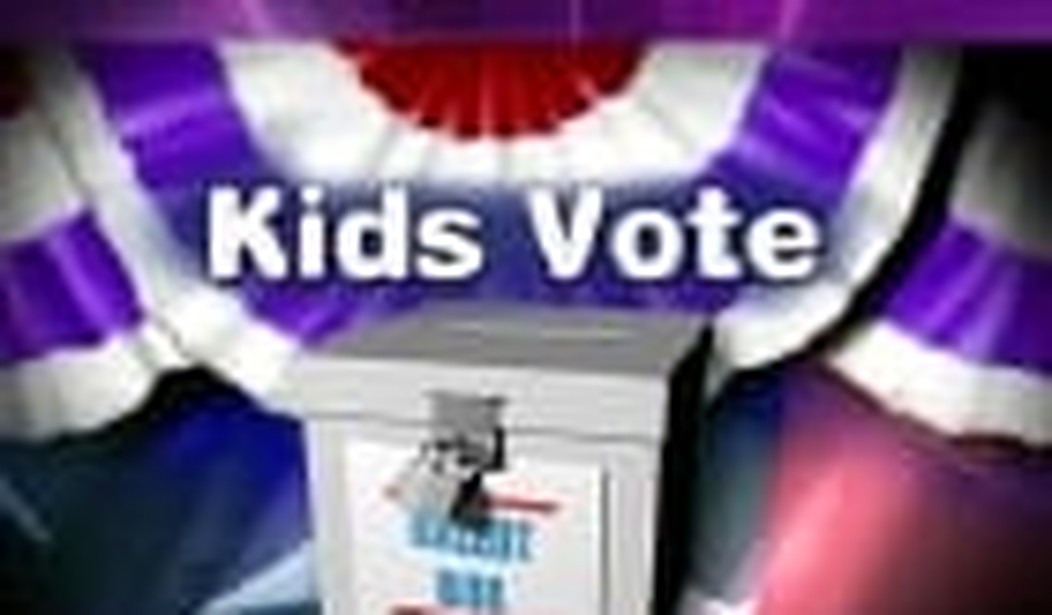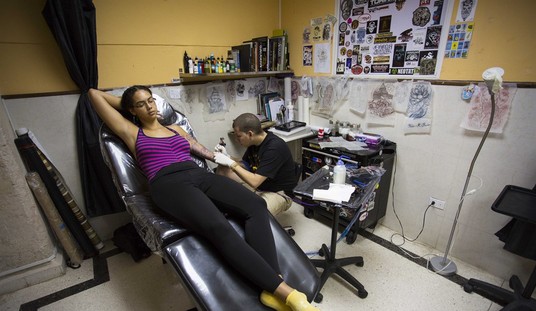The other day I read a couple of letters to the editor of the New York Times, from people who were sincerely offended that, as had been discussed in a recent Times article, mentally deranged people are often not allowed to vote.
Here’s part of one letter: “I am very troubled by [your article], which reports political efforts to prevent people with mental disorders and elderly people with dementia from voting. Our constitutional right to vote does not require that any one of us make a rational choice. …”
Here’s part of the other: “I was appalled to learn that the mentally ill can be kept from voting, and that some are trying to make it even harder for them to participate in the democratic process….Our government’s just powers must be derived from the consent of all the governed, not merely an elite comprised of mentally sound elders.”
The former letter, by the way, is from a doctor; the latter letter also cites with approval the lowering of the voting age in Austria to 16. I should add that the American Bar Association voted favorably at its annual convention this summer on a resolution that will urge jurisdictions to make it easier for mentally incompetent people to vote. And there is a much-publicized, multifront effort to curtail the practice in many states of disenfranchising felons, and there are even activists who think that noncitizens should be allowed to vote.
It is a pretty basic question for our system of government, isn’t it: Who should be allowed to vote?
There are only four groups of people who are generally not allowed to vote in the U.S. now, and the Left wants to enfranchise more of all of them: children, criminals, noncitizens, and the mentally ill.
Now, no doubt–as National Review’s Jonah Goldberg has observed–much of this is politically driven: The Left thinks that all these groups (with the possible exception of the latter) are more likely to vote with them than against them, and it may well be right. But I also think that part of it is more deep-seated than that. This is one fundamental, instinctive difference between Right and Left: The former believes in standards (or, to be less charitable, is elitist), and the latter does not (or, to be more charitable, embraces egalitarianism more passionately).
To be sure, most liberals and most conservatives agree with the basic approach of letting nearly everyone vote these days.
I think there is a moral reason for this and also a utilitarian reason. They are not mutually exclusive.
The moral reason is that, if the government is going to boss you around, then you ought to have some say in how it is run and what rules it makes. No taxation without representation and all that.
The utilitarian reason is that the government will make wiser choices if we let most people vote. If we had some way of knowing which particular people would most skillfully foresee who the best candidates and referenda are, then it would obviously lead to better government if we let only those people vote. But knowing these electors is impossible, and it is not even easy to choose their credentials. Many of us suspect that, as William F. Buckley, Jr., once famously observed, the first 2000 names in the Boston phone book really are wiser in these matters than the Harvard faculty. Moreover, the few are foolish but the many are wise, so it makes no sense to limit yourself to the first 2000 names if you can get input from the whole
directory.
If these are the two reasons that we have (nearly) universal suffrage, then this also suggests why there ought to be some limits on it.
The moral justification, for instance, is less compelling if the person who wants to vote is unwilling to obey the government or follow its laws. Thus, criminals are generally limited in their voting. Likewise, since noncitizens are typically bossed around less, and more temporarily, than citizens, it’s less offensive that we not let them vote, even if they do have to pay taxes and so forth.
With regard to the utilitarian rationale, while we may not be sure who the wisest people are, we may be pretty confident that some people really do have poor judgment. Children and the mentally incompetent are good examples. And we may also be reasonably confident in doubting that some people have the nation’s interests at heart, and so we are less interested in their input; here again, criminals and noncitizens come to mind.
Here’s an additional note: Rejecting people for either rationale is troubling if the rejection is subjective and, thus, more liable to being abused, but less troubling if based on the failure to meet an objective criterion that has its origins outside the voting context. Thus, we might be nervous about giving exams or even simple literacy tests to determine who votes, especially in light of past abuses; on the other hand, basing the decision on age or criminal record or citizenship or prior medical determinations of mental incompetence is–or at least ought to be–less
troubling.
And one last note: Voting is, of course, not the only way that power is exercised in our republic. Other ways–lobbying, running for office, litigating, and so forth–have grown and adapted over time. There are sound, Burkean reasons why none of this should be radically altered, and that includes dramatically expanding or contracting the franchise.
Roger Clegg is president and general counsel of the Center for Equal Opportunity in Falls Church, Virginia.








Join the conversation as a VIP Member